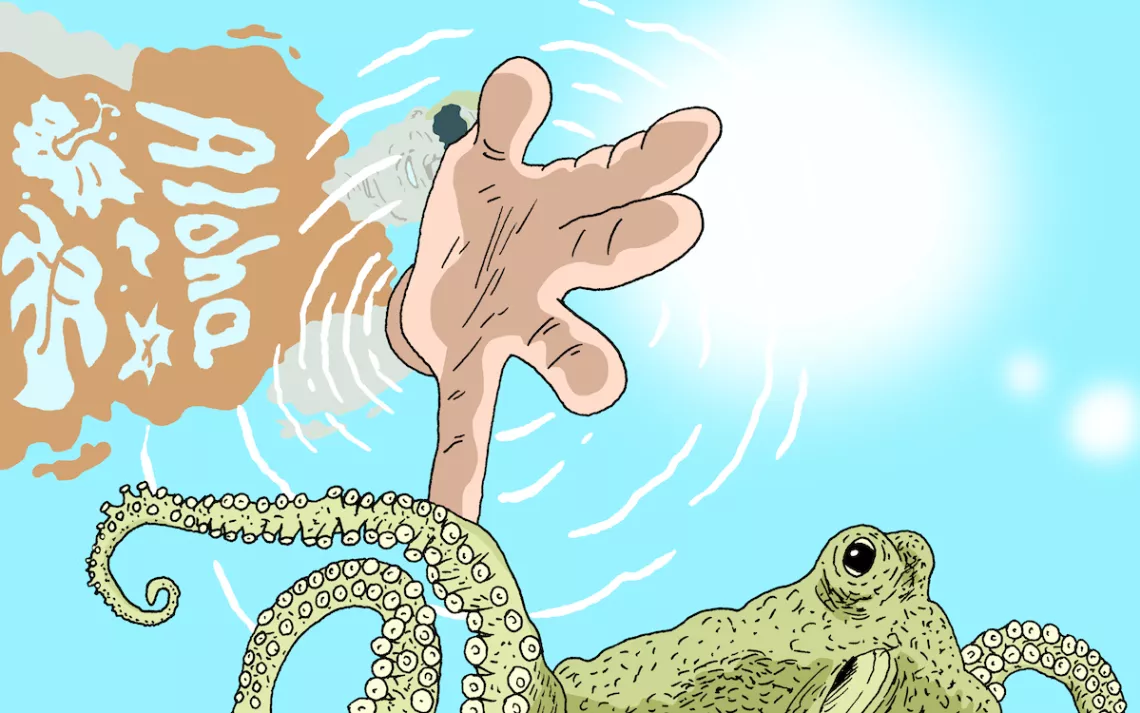ICYMI: Octopus Farm, Blackmail Fail, Giant Snowpack & Even the Weather Is Partisan
A weekly roundup for busy people

The world’s first octopus farm opens in Hawai’i.
China records its first drop in population since 1961, the last year of the Great Famine.
A huge deposit of rare earth metals is discovered in Sweden, enabling a large expansion of green energy without fear of conflict with China, at present the source of 98 percent of the rare earths used in the European Union.
Vladimir Putin’s effort to blackmail Europe by cutting off its supply of methane gas has failed.
India now buys 33 times as much Russian oil as it did a year ago.
Due to decisive international action, the hole in the ozone layer in Earth’s upper atmosphere is on track to fully heal by 2045 over the Arctic and 2066 over the Antarctic.
Bottlenose dolphins, usually found in Baja California and Southern California, appear for the first time in the San Francisco Bay Area.
NOAA Fisheries finds no evidence that offshore wind installations on the East Coast are linked to whale deaths.
New Jersey will require new beachfront homes to be built at least six feet above flood level.
In November 2022, Californians used 14 percent less water than they did in November 2020.
Arizona says that a large housing development west of Phoenix lacks sufficient groundwater and will have to find its water elsewhere.
The USDA issues a crackdown on foods fraudulently marketed as organic.
Rainforest carbon offsets sold by Verra, the world’s largest marketer of such credits, do not represent genuine carbon reductions.
Wyoming Republican senators propose a bill to phase out electric vehicles by 2035 to “ensure the stability” of its oil and gas industry.
California’s snowpack reaches 250 percent of normal for this time of year and is only a few points shy of normal for the entire season. The snowpack in the Upper Colorado River Basin is 140 percent of normal.
Democrats are 20 percent more likely to say they have seen extreme weather in their area; Republicans are 26 percent more likely to say they haven’t.
 The Magazine of The Sierra Club
The Magazine of The Sierra Club



